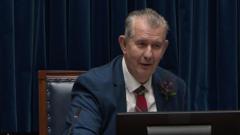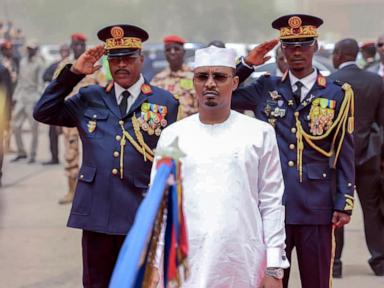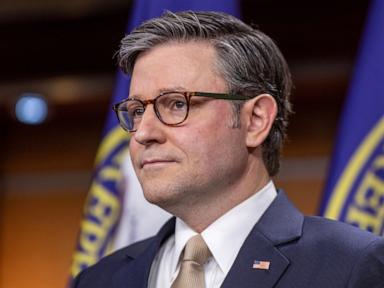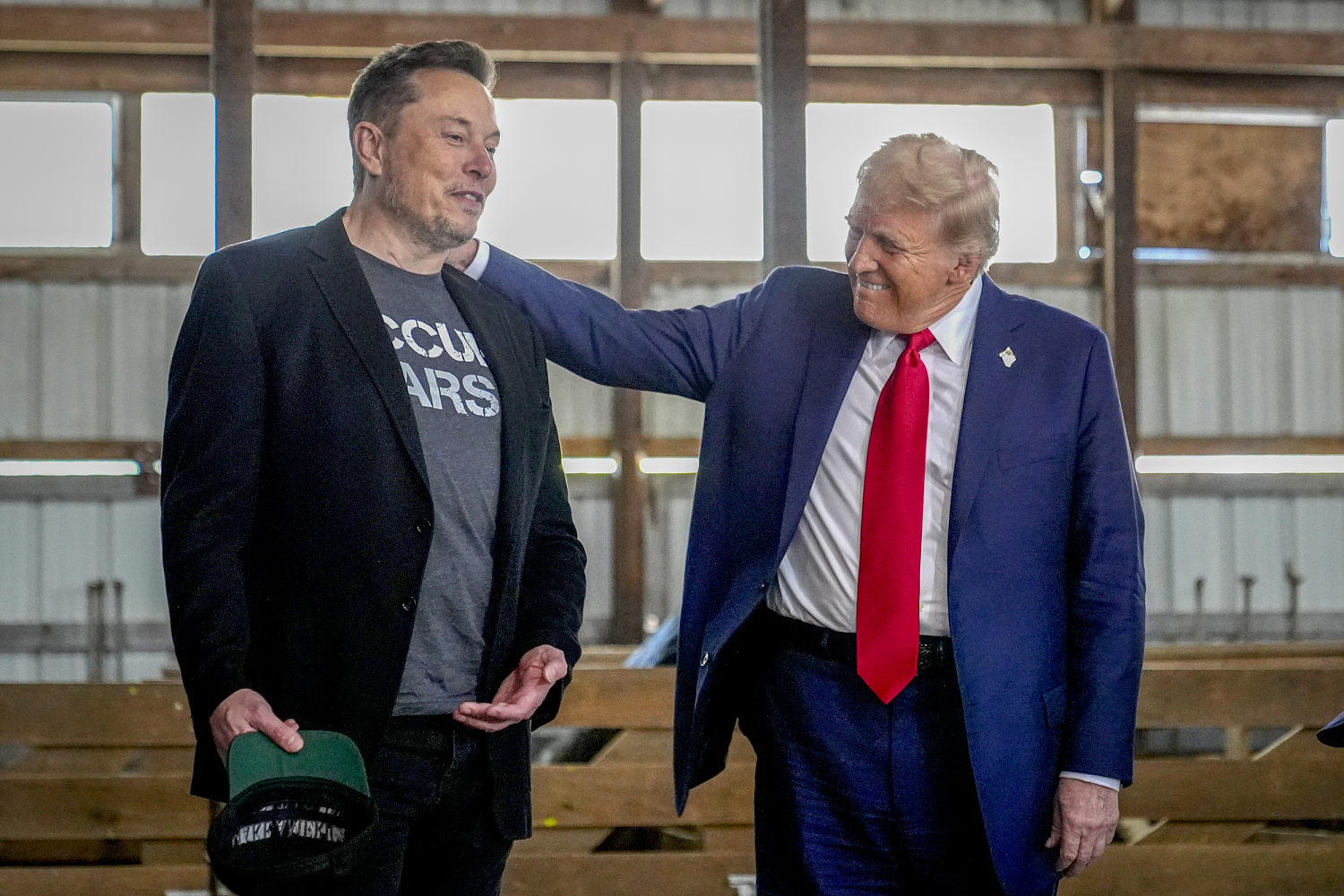The NATO Parliamentary Assembly: An agenda for peace, security and democracy

On July 18, 1955, 158 members of parliament from the then-15 member countries of NATO gathered at the Palais de Chaillot in Paris to affirm their conviction that security is best assured when it is firmly rooted in democracy.
It was as clear then as it is today that the collective defense of Europe and North America, guaranteed by NATO, requires the active engagement of allied citizens through their elected representatives. From that conviction, the NATO Parliamentary Assembly was born.
For 70 years, the assembly has carried forward the voice of allied legislators on key priorities for transatlantic security and prosperity. It today brings together 281 members of parliament from the 32 NATO member countries. It is the essential link between the alliance and its 1 billion citizens.
As we enter NATO's 70th anniversary year, the assembly’s role in reaffirming and defending NATO’s shared democratic values is more vital than ever, because our peace, security and democracy are under attack.
They are under attack in Ukraine, where Moscow — helped by its accomplices in Minsk, Beijing, Pyongyang and Tehran — seeks to crush the aspirations of a free and independent people to determine their own democratic future.
They are also under attack in our own countries. Every day, Russia, China, Iran, North Korea and their autocratic friends seek to influence our politics and elections, spread disinformation, undermine trust in our democratic institutions and disrupt our critical infrastructure, undersea energy and communication cables and other essential services through cyberattacks and other acts of sabotage. These are not isolated acts. They are part of a well-organized campaign of subversion.
The way the allied community of democracies responds to this fundamental threat will shape the international system for decades to come. To restore peace in Europe and to defend our democratic way of life, we must rally our citizens around an agenda for peace, security and democracy, with NATO as the cornerstone and guarantor of our collective defense and shared democratic values.
First of all, we must bolster our unique transatlantic bond. The ties binding Europe and North America through NATO were born out of the tragedy of World War II. The remarkable commitment enshrined in Article 5 of the NATO Treaty to defend each other against attack has kept our people safe for 75 years. However, this bond should never be taken for granted. It must be nurtured, so that neither Russian President Vladimir Putin nor any other autocrat will ever step over that red line.
Even though recent years have seen significant change in many European countries, for too long, Europe has failed to pull its weight in this alliance. It has enjoyed the benefits of peace under the United States’ security umbrella while falling woefully behind in meeting essential defense spending obligations.
European allies must now step up and strengthen their contribution to transatlantic security and our collective defense industry capacity. There is no peace without strong and credible defense and deterrence, and that is only possible with more investment in the defense capabilities that Europe so urgently needs.
Secondly, Europe and North America must increase support for Ukraine. Ukraine is fighting for our values, for a world ruled by right rather than might. This war is the existential struggle of our generation. Russia shows no interest in a fair and just peace. If we allow Russian aggression to succeed, we risk catastrophic consequences around the world.
Thirdly, we must face up to the threat that Russia, China and other autocracies pose to our democracies. If we fail in this essential endeavor, we put at risk the very freedoms and institutions that have underpinned our democratic societies in the post-World War II era.
As parliamentarians, we are on the frontline of an increasingly fraught struggle to defend our democratic way of life. NATO must be too. This is why the Assembly has called for the establishment of a Centre for Democratic Resilience at NATO headquarters for allies to share best practices and experience. To counter the global autocratic onslaught and defend the rules-based international order from subversion, we must also engage more actively with major non-aligned democracies around the world.
The collective defense pledge in Article 5 remains the backbone of the NATO Alliance. However, the NATO treaty’s preamble and Article 2 also commit allies to safeguard democracy, individual liberty and the rule of law, and urge them to strengthen their free institutions. Today more than ever, the NATO Parliamentary Assembly is committed to delivering on that promise, standing resolutely to defend peace and security, firmly grounded in our shared democratic values.
Marcos Perestrello de Vasconcellos is president of the NATO Parliamentary Assembly.
-
Irish PM finally appointed after day of parliamentary chaos
Micheál Martin returns as Taoiseach at helm of coalition bracing for Trump’s tariff and tax threatsFinancial Times - Jan. 23 -

'Dress smartly', NI Speaker warns assembly members
Stormont Speaker Edwin Poots said MLAs had a "very loose interpretation of smart".BBC News - Jan. 21 -

Nato flotilla assembles off Estonia to protect undersea cables in Baltic Sea
Taskforce to act as ‘security camera of the Baltic’ after string of suspected sabotage incidents on critical infrastructure. A Nato flotilla likened to “the security camera of the Baltic” has ...The Guardian - Jan. 19 -
Putin’s Plan for Peace Is No Peace at All
Now is the time for the United States to build on its historic success supporting Ukraine, not squander it.The New York Times - Jan. 14 -

Chad’s ruling party wins majority in parliamentary election boycotted by main opposition
Chad’s ruling party took the majority of votes in last month’s parliamentary election that the main opposition party boycottedABC News - Jan. 12 -
Comoros holds a parliamentary election boycotted by some opposition parties
Comoros is holding a parliamentary election that some opposition leaders have pledged to boycottABC News - Jan. 12 -

The Musk threat to European democracy
Free speech push, now backed by Meta’s Zuckerberg, risks spread of disinformationFinancial Times - Jan. 8 -

Johnson says no cuts to Social Security and Medicare to fund Trump's agenda
House Speaker Mike Johnson said cuts to Social Security and Medicare won't be part of the legislative plan being worked out to fund President-elect Donald Trump's agenda.ABC News - Jan. 7 -

A rallying call for democracy in South Korea
South Korean President Yoon Suk Yeol's attempted martial law declaration sparked a wave of collective resistance from citizens, who used protests, social media, and cultural works to express their ...The Hill - Jan. 6
More from The Hill
-

Democrat places blanket hold on Trump’s State Department picks over targeting of USAID
Sen. Brian Schatz (D-Hawaii), a member of the Senate Foreign Relations Committee, announced Monday he will place a blanket hold on all of President Trump’s nominees to the State Department until ...The Hill - 39m -

5 things to know about Trump's plan to create a sovereign wealth fund
President Trump is taking steps to overhaul the way the U.S. government invests its money and change the nature of America’s financial presence abroad. The president signed an executive order ...The Hill - 48m -

18 House GOP lawmakers back Trump’s birthright citizenship order in court
A contingent of House Judiciary Committee Republicans backed President Trump’s order restricting birthright citizenship, filing a brief Monday in a lawsuit filed by four Democratic state attorneys ...The Hill - 49m -

Court restores protections for critically endangered whales off New England
A Massachusetts court on Monday restored federal protections for endangered whales off New England against entanglement in fishing equipment, overruling a lower court that struck down the federal ...The Hill - 1h -

Ron Johnson: 'I share the market’s concern' on Trump tariffs
Sen. Ron Johnson (R-Wis.) said Monday that he is in line with “the market’s concern” about President Trump’s recent tariffs. “I share the market’s concerns. … I want free trade around the world,” ...The Hill - 1h
More in Politics
-

White House says Elon Musk serving as a 'special government employee'
Elon Musk is serving in the Trump administration as a "special government employee," according to a White House official.NBC News - 5m -

White House says Elon Musk serving as a 'special government employee'
Elon Musk is serving in the Trump administration as a "special government employee," according to a White House official.NBC News - 5m -

Trump tariffs stand to leave his voters feeling 'betrayed,' says Kentucky Gov. Beshear
Kentucky Governor Andy Beshear (D) joins Meet the Press NOW to discuss the impact Trump's tariffs will have on Kentucky and the nation.NBC News - 18m -

Trump tariffs stand to leave his voters feeling 'betrayed,' says Kentucky Gov. Beshear
Kentucky Governor Andy Beshear (D) joins Meet the Press NOW to discuss the impact Trump's tariffs will have on Kentucky and the nation.NBC News - 18m -

Trump honors the Florida Panthers for their Stanley Cup win at the White House
President Trump welcomed the Florida Panthers to the White House to celebrate their 2024 Stanley Cup championship in the National Hockey League.NBC News - 19m